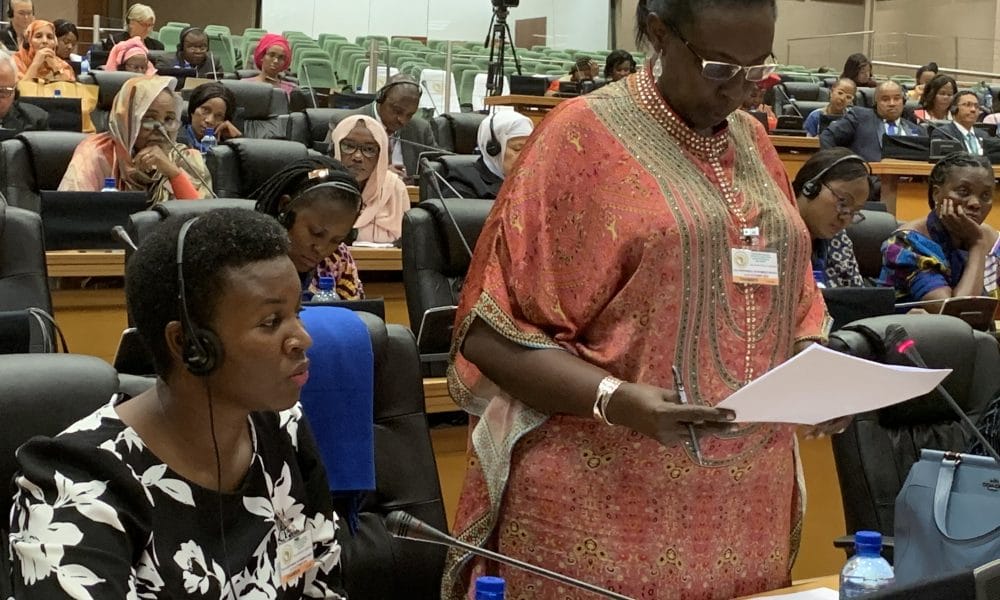
By Admin
Legislators and civil society groups have called for the inclusion of women in all peace building activities and processes in order to bring about lasting peace on the African continent.
In resolutions adopted at the end of a two day Pan African Parliament Conference on women’s rights, participants were concerned that women and children are the most affected by conflicts and displacement.
The conference was held at the Pan African Parliament headquarters in Midrand, South Africa 14 – 15 October 2019. It was attended by African women legislators and persons involved in work and advocacy in the areas of women and gender.
Uganda was represented by Hon. Anifa Kawooya (NRM, Sembabule district), Hon. Jacquiline Amongin (NRM, Ngora district), the Chairperson of the Uganda Women Parliamentarians, Hon. Pamela Kamugo (NRM, Budaka district), Hon. Robina Rwakoojo (NRM, Gomba) and Hon. Justine Khainza (NRM, Bududa district).
Participants noted “with regret that women bear the burden of poverty, owing to limited access to decision making processes, finance, education, health and means of production.”
The conference, held since 2008, provides an avenue for ongoing monitoring and evaluation of women’s issues; revisiting progress made by the PAP in the promotion of gender mainstreaming; the economic advancement of women on the continent; and a discussion on the planning, implementation and monitoring of gender focused programmes, policies and activities of the African Union and PAP.
The meeting called upon African Union Member States to strengthen comprehensive mediation, peace building and conflict resolution mechanisms, including the full participation of women in all peace building activities and processes, to pursue national reconciliation through the African Peace and Security Architecture, to strengthen Africa’s peacekeeping and enforcement capabilities and collaboration with the United Nations system.
During a debate on the role of parliamentarians, Hon. Anifa Kawooya (NRM, Sembabule district) appealed to fellow legislators to gain confidence to be able to lobby their male colleagues and government to see that issues affecting women are passed in Parliament.
“We lack skills and we are not confident and due to our low numbers we need to lobby governments to push our issues through Parliament,” she said.
Recommendations on the African Women’s Decade, 2010 – 2020, ratification of the African Continental Free Trade Agreement, the AU theme for 2019 on refugees and internally displaced persons and on women and ICT were adopted.
Participants urged member states to put the concerns of refugees, internally displaced persons and stateless persons on the agendas of the AU Peace and Security Council and Regional Economic Communities.
Other recommendations included:
On the African Continental Free Trade Agreement:
- Urge member states to ratify the African Continental Free Trade Agreement;
- Call upon member states to put in place deliberate programmes to empower women to actively participate in the free trade and to opt for gender responsive policies to improve inclusiveness;
- Call on member states to ensure access to trade information, services, finance, ICT and market opportunities;
- Call on parliamentarians to monitor the negotiations, the implementation and impact of the AfCTA with a particular focus on the participation of women;
- Call on Member States to build the capacity of women so that they can add value to commodities with the view to increase production and supply of services.
On women and ICT
- Call upon parliamentarians to advocate in their member states for Internet access as a basic right;
- The integration of ICT into school curriculum and the elimination of barriers to enable young girls pursue programmes in the field of Science, Technology, Engineering and Mathematics (STEM).
ENDS




